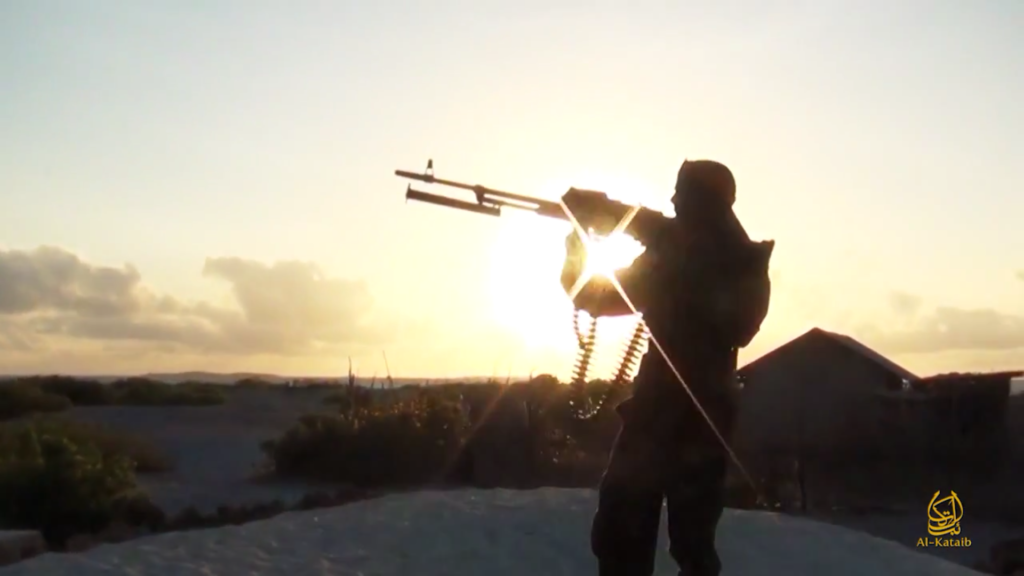
Al Qaeda’s official branch in East Africa, Shabaab, continues to demonstrate that it can penetrate high security areas of Mogadishu, Somalia’s capital city. In a suicide assault yesterday, Shabaab killed 13 people in a complex attack at the Ambassador’s Hotel.
Much like other Shabaab invasions on hotels, yesterday’s offensive began with a suicide bombing near the hotel’s entrance. Afterwards, a small team of gunmen were then able to breach the perimeter and storm the building. The jihadists killed 13 people in the raid, including two Somali members of parliamant, while another 40 were injured. The attack lasted for over two hours before Somali special forces were able to neutralize the remaining gunmen.
The suicide raid, or coordinated attack using one or more suicide bombers and sometimes a follow-on assault team, is a tactic frequently used by al Qaeda and its branches, as well as allied groups such as the Afghan Taliban, the Movement of the Taliban in Pakistan, Lashkar-e-Taiba, and the Islamic Movement of Uzbekistan. The Islamic State also often employs this maneuver. Suicide strikes are commonly executed by jihadist groups in Iraq, Syria, Yemen, Afghanistan, Pakistan, Somalia, and Nigeria.
The strategy is a common one used by Shabaab in its regular invasions on hotels and areas frequented by Somali dignitaries and Westerners. In January, Shabaab launched an attack on the Beach View Hotel on Lido Beach, killing over 20 people. In February, Shabaab targeted the Somali Youth League (SYL) Hotel in Mogadishu, terminating nine. The same hotel was targeted last year when Shabaab claimed credit for a bombing at the hotel that killed three people. The offensive took place as Turkish President Recep Tayyip Erdogan and a delegation were at the hotel.
In November 2015, Shabaab raided the Al Sahafi hotel. The attack, which began with two vehicle-borne improvised explosive devices (VBIED’s, or car bombs) before an assault team entered the breached perimeter, left at least 15 dead. In July 2015, Shabaab killed more than 10 people after storming the Jazeera Hotel. This was not the first time the Jazeera was targeted by the jihadist group. Shabaab also hit the hotel in January 2014 and September 2012; the president and Kenya’s foreign minister were present during the 2012 strike, but they were unhurt.
In March 2015, the jihadist group stormed another hotel and briefly seized control of it before the attackers were killed by security forces. One month earlier, a suicide assault team hit the Central Hotel, a gathering place for Somali parliamentarians and other members of government, killing several senior Somali politicians.
Attacks like these are designed to demonstrate that the jihadist group, despite a large presence of African Union forces, retains the ability to strike in these high-security areas. Since 2014, Shabaab has attacked the parliament, the president’s compound, and a high security intelligence headquarters. In June 2013, a Shabaab team struck at the United Nations Development Program (UNDP) compound in Mogadishu; several UNDP employees were killed and the jihadist group briefly took over the compound. And in 2010, Shabaab was even able to launch a suicide assault on an African Union medical clinic in the Mogadishu airport.
While Shabaab has lost many of its major urban strongholds and areas in the rural south, it still controls large portions of southern Somalia and remains a potent force. It is still able to mount regular assaults on Somali and African Union troops in southern and central Somalia and it has increasingly been pushing attacks further south into neighboring Kenya in the last year while regaining control of towns it had previously lost in the south.








3 Comments
Maybe with two Parliamentarians killed they’ll have to move the government back to Baidoa? Why didn’t we offer assistance from the Airport? Oh right, we tried something like that in ’93 and it blew up in our faces. Every theater in the terrorist world war is the same broken regressive, chaotic record. The broad lesson is that it’s easier to create chaos than stability. Takes far less money and time and patience. Which augurs ill for Uncle Sam.
And now UK Def Sec Hammond flies in to say hi in the midst of a gunfight?! What are the Brits thinking? You don’t send a top level guy like that into the darkness…
Let me get this straight – after umpteen attacks that go as follows, the most blown-up, shot-up city since Beirut still hasn’t figured out the shabaab’s MO?
“Shabaab Attacks for Dummies”
1. Drive suicide bomber up to check point. Blow up check point and neutralize guards
2. Apply rapid fire from concealed position in between civilians
3. Have a hidden squad of suicide terrorist run in, killing anything and everyone
4. Bonus: take hostages, blow up hostages when the inevitable bumbled CT response comes
5. Post pictures on social media exhorting the faithful
To quote some german dude from 100 years ago – at what point does incompetence end, and criminality begin?